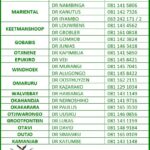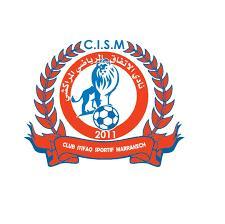
Staff Reporter
THE Livestock and Livestock Products Board (LLPBN) has developed new educational materials to support the Directorate of Veterinary Services (DVS) in raising awareness about foot-and-mouth disease (FMD). The initiative includes a practical protocol for handling suspected cases, aimed at helping farmers and livestock handlers respond swiftly and correctly to potential outbreaks.
According to the LLPBN, early detection and containment are critical in preventing the spread of FMD, one of the most serious livestock diseases affecting cattle, goats, sheep and pigs. Farmers, producers and all livestock stakeholders are urged to familiarise themselves with the information and to share it within their networks to strengthen national disease surveillance efforts.
Symptoms of FMD in cattle, goats and sheep include:
- Lameness in several animals within a herd
- Blisters or sores on the tongue, gums or lips
- Excessive salivation
- Lip smacking or teeth grinding
- Blisters or sores between the hooves
- Mild or unnoticed symptoms in goats and sheep
In pigs, symptoms may appear earlier and more severely, including all the signs mentioned above as well as blisters or sores on the snout.
FMD is suspected when two or more of these symptoms are observed in multiple animals within a herd.
The LLPBN has also outlined the following protocol for handling suspected cases:
- Immediately isolate the affected herd, if possible.
- Do not move any animals out of the herd, even if they appear healthy.
- Avoid rounding up livestock; instead, observe them calmly for signs such as lameness or salivation.
- Inspect all camps and herds to determine the extent of the suspected outbreak.
- Ensure no water troughs or sources are shared with unaffected herds.
- Prevent nose-to-nose contact between affected and unaffected animals.
- Notify your local State Veterinarian and Farmers’ Union representative immediately.
- Stop all animal movement to and from the affected establishment.
- Avoid human contact with the affected animals; if contact occurs, disinfect hands, clothing and footwear before handling other animals.
- Do not spread unverified information — only the Chief Veterinary Officer may communicate with other producers.
- Cooperate fully with the State Veterinarian.
- Inform the Farmers’ Union representative of the inspection outcome, who will then relay information to the Chief Veterinary Officer.
Farmers are advised to strictly follow all instructions issued by State Veterinarians and the Chief Veterinary Officer.
Emergency animal health contact numbers for all regions
KARASBURG
- DR DEKLERK – 081 143 2911
- DR NAMBINGA – 081 141 5806
MARIENTAL
- DR KANUTUS – 081 142 7326
- DR IIYAMBO – 063 242 171/2
KEETMANSHOOP
- DR LOUWRENS – 081 143 4562
- DR GROBLER – 081 161 0818
GOBABIS
- DRGOMXOB – 081 142 3824
- DR JUNIAS – 081 146 3418
OTJINENE
- DR KAPIMBUA – 081 141 5850
EPUKIRO
- DR VEII – 081 145 8421
WINDHOEK
- DR MURANGI – 081 145 7041
- DR ALUGONGO – 081 145 8422
OMARURU
- DR OOSTHUVZEN – 081 162 2111
- DR KAZARAKO – 081 129 1034
WALVISBAY
- DR HAWANGA – 081 129 1034
OKAHANOJA
- DR NDINOSHIHO – 081 141 9716
OKAKARARA
- DR PAULUS – 081 165 3530
OTJIWARONGO
- DR UUSIKU – 081 146 0856
GROOTFONTEIN
- DR LUKAS – 081 143 1159
OTAVI
- DR DAVID – 081 148 9184
OUTJO
- DR SIMASIKU – 081 165 0109
KAMANJAB
- DR KATUMBE – 081 143 1148












